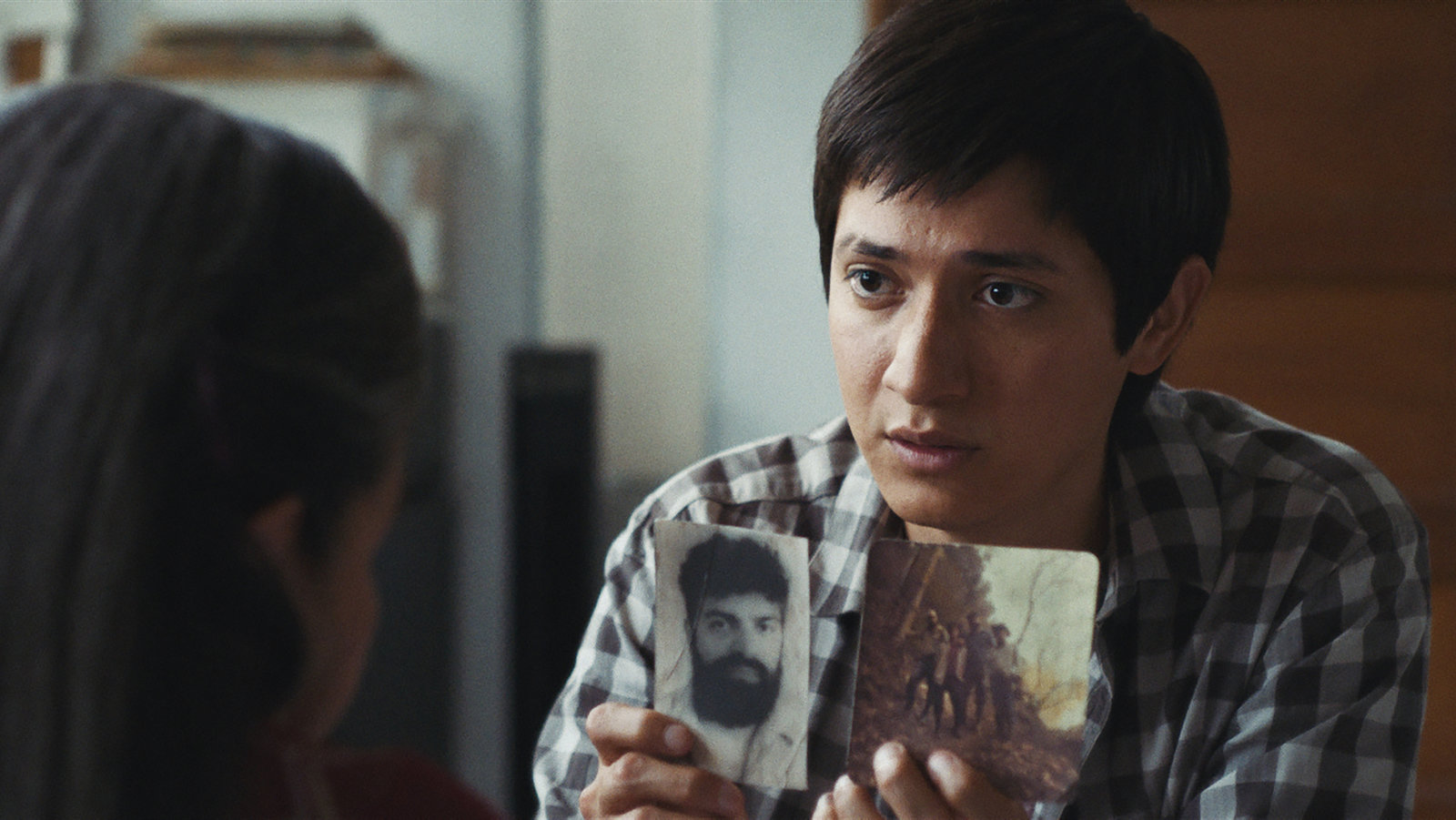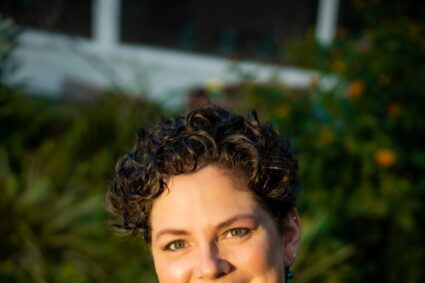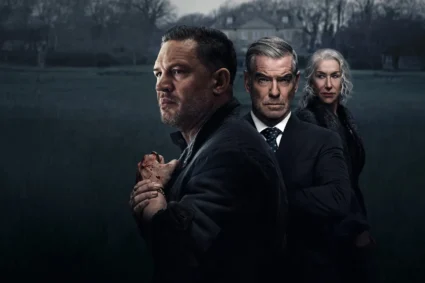
On today’s edition of THE INTERVUE, reporter Arely Perez talk to Sundance winner Armando Espitia about his role in the upcoming Outsider Pictures film, Our Mothers (Nuestras Madres), being release virtually May 1st.
Ernesto is a young anthropologist working for the Forensic Foundation in Guatemala in 2018, when the whole country is immersed in the trial of the soldiers who sparked the civil war. As victim statements come one after another, Ernesto’s job is to identify the bodies of the missing. One day, while hearing the account of an older woman from a small village, he thinks he has found a lead that might guide him to his father, a guerrillero who went missing during the war. Against his mother’s wishes, he throws himself body and soul into the case, looking for the truth.
Arely Perez has the interview.
What is the role that you play in Our Mothers?
My character is called Ernesto, he is a forensic anthropologist who after living practically all his life in Mexico with his mother where they lived exiles, they return to their country that is Guatemala. My character’s job is to help the relatives of the disappeared during the armed conflict in Guatemala to recover the remains of their disappeared relatives.
Your character also talks about a young man who is looking for his missing father in these massacres How did you feel knowing that you would revive the character of a generation of people who are going through this process of power or hope to find their parents?
One night I realized that I was going to represent in some way a generation of people in Guatemala and in other Central American countries who have been through the same thing and who are my age or who are close to my age. I worked very hard to do it with dignity, I think the way to respect his story is to make him as human as possible and as complex as possible, sometimes my character seemed to me to be capricious who was hateful his with his mother who was too demanding as a little boy wanting to be right or infatuated with wanting to find his father’s traces of “Where or who was he?” In the end, all this responds to a search for the deep identity of “Who am I?” “Where do I come from?” “Why if I am from Guatemala I have lived all the time in Mexico?” “Why am I uncomfortable here and in Guatemala?”
I don’t feel like I belong anywhere. But on the other hand, I identify with these indigenous women and all that responds to who my parents are and where they took me where they conceived me and why. So, based on this attitude, let’s say capricious and childish of a character who is only bringing childhood from where he has so many doubts and so many confusions is bringing it to this moment. I feel that even though he is already an adult man, from what he is really looking for in this film, he really begins to grow as a man.
Conversing with the Director César Díaz he mentioned that many of the bones seen in the film are real ¿how did you feel knowing that you were going to be around these bones that were taken from these mass graves that come from this massacre?
It was the part that scared me the most when doing this work, at one point we worked before the film very intensely about studying the history of Guatemala and learning a lot of testimonies from Guatemalans who lived and went through it, they were around three months that I was reading and informing myself about it and when I realized this that you just said was when I understood one night that I was about to sleep I realized that I was going to have to work with the real bones.
My preparation indicated that I would go to the foundation and be able to learn to really work with it. When I realized that I was going to have to maneuver these bones of people who really went through that and unfortunately died, I was very scared. I remember that I wrote an email to Cesar saying that if I was worthy enough to do this job which everywhere implies a lot of responsibility even spiritually and I was afraid for a point of doing it. The respect with which they work in that foundation, the dignity they give to these cases and the professionalism of the people who taught me how to do it, the daily routine with which they do their work made me a little lose all fear when working how we did it with the same respect if they were real bones or if it was the work of art directors, I was no longer thinking about that I was thinking more about what the character was going through. I always go through these processes acting and we end up doing it. Obviously, that was not going to stop me but for a moment I hesitated.
You are Mexican, were you aware of what had happened in Guatemala before doing this cast for this movie?
I didn’t know anything, the first time I met César who was in one of the castings, although I was very sorry I had to accept it and I said I don’t know anything but really nothing, I didn’t even know the name of the President. The first thing he did for me and Emma that we are the Mexican actors who play these leading characters was to inform us to study the task and in the end to inform us and immerse ourselves in all the recent culture of history, in addition to traveling for a few days before filming we went there to rehearse then I arrived about three weeks before filming to prepare and meet people. All this leaves me with a very special flavor and love for the Guatemalan culture and the country and for the people of Guatemala.
What was your experience working with the entire cast, most of them are not real actors?
I think that all this work for me was always a lot of learning and a lot of humility, for some reason César decided that my character should be played by a professional actor because I dedicate myself to this as does the character of Cristina my mother who surrounded us other people who are not dedicated to acting and who gave him everything not only the moms, but also Julio Serrano, Aurelia Caal who do not dedicate themselves professionally to this. The magic was there as Guatemalans and their culture were, they were committed to this story, they taught me a lot in the case of mothers I wanted to always treat their stories with great respect and dignity, we are already filming in their town we are getting into In his daily life something that Cesar and the production took great care of, we did not want to invade or fill it with garbage and all the crew that are Guatemalans and those of us who came from outside were very respectful of the town.
When we were recording with them they did not speak, they taught me how to work with the dried corn they had there, they taught me how they used their looms, they taught me two to three everyday things they did in the town, but it was not an opportunity to talk about their stories. The experience was magical because they guided you towards the daily life of the village people where they live and as actors it is appreciated because they help you to get more into the reality of the situation.
What did you enjoy the most when recording this movie?
The truth was everything about Guatemala and its people there. In the end I live in Mexico City, which is still a great city, and the crew that participated in Guatemala had a very different vibe, very close, very warm, despite some dangers in the city, that many things happened to us there, the people do not stop being warm and that filled me with great joy. Also discover how in Guatemala the filming industry, normally in Mexico we have the reference that the United States and the money you have to produce, I have worked in a couple of American productions and with all the budget they have there you see the difference, you say “We are in misery. We have nothing. Do we have no resources?” but on the other hand we have a fascinating industry and the same thing happens the other way around with Guatemala, they think the same as us and despite having even less infrastructure and perhaps fewer resources than Mexico there is a lot of talent, a lot of creativity, the people who film left me as an education and a chest full of pride to see that with little you can do brilliant things, then all the way the film has had thanks to the effort of the Guatemalan crew, thanks to the efforts of the people of Belgium and people everywhere and With all the positions that served to tell this story, I am proud to be part of it, I love it.
What would you say to all the people, so they can’t miss seeing this movie?
Well I think it is a very exciting emotional journey, it is very touching, I think that right now we have time that we have given ourselves in this confinement to think about ourselves in ¿who we are? And why do we have so many doubts, I think that Ernesto’s story can accompany them and can drain their emotions is very beautiful, so I hope that people will see it.
Our Mothers (Nuestras Madres), release virtually May 1st


